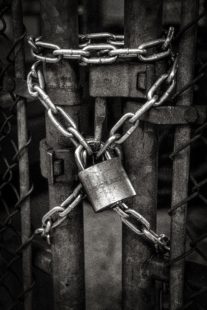Codependency Recovery: Losing the “Savior Complex”
Christian Counselor Spokane
In many counseling offices across the country, there is an increasing number of individuals who are suffering from issues of codependency. Codependency can be brought on by one growing up in a dysfunctional family where others’ needs are not respected, members are not allowed to be comforted, nurtured, or they must deny their own needs and opinions.
According to http://www.mentalhealthamerica.net/go/codependency, “Underlying problems may include any of the following:
- An addiction by a family member to drugs, alcohol, relationships, work, food, sex, or gambling.
- The existence of physical, emotional, or sexual abuse.
- The presence of a family member suffering from a chronic mental or physical illness.
 Dysfunctional families do not acknowledge that problems exist. They don’t talk about them or confront them. As a result, family members learn to repress emotions and disregard their own needs. They become, “survivors.” They develop behaviors that help them deny, ignore, or avoid difficult emotions. They detach themselves.”
Dysfunctional families do not acknowledge that problems exist. They don’t talk about them or confront them. As a result, family members learn to repress emotions and disregard their own needs. They become, “survivors.” They develop behaviors that help them deny, ignore, or avoid difficult emotions. They detach themselves.”Sue grew up in a home where her father was an alcoholic and there was not much compassion or nurture from family members. Her mother was working long hours and she was left to “tend” to her father who would demean her and order her around. When she was 18 years old, she left home and lived with her boyfriend to get away from the pain and hurt she felt at home.
Unbeknownst to her, she began a pattern of getting involved with men who disregarded her feelings, were critical and controlling and left her with low self-esteem and shame. She would talk with friends and family and even church members who would all encourage her to be assertive, to leave the negative relationships or at least set healthier boundaries, but she never would.
She complained and moaned to others about her hardships with relationships but never made the steps to find health and many friends and family grew weary of trying to give her advice only to see her stay in unhealthy relationships stating that “he needs me, or I am only one they have.”
When she came to the office she had finally decided to leave an unhealthy relationship but was finding she could be pulled back into the chaos with one phone call. She was finally ready to have some help loving herself again.
Most codependent people are not bad people and their hearts and intentions are in a good place. But years of being in unhealthy relationships have led them to deny their own needs and self-care.
 “They detach themselves from having to deal with the matters at hand. If they just ignore them then they don’t have to feel, confront or work through any negative emotions. This is the proverbial example of the family ignoring the “Elephant in the Room.” They don’t trust.
“They detach themselves from having to deal with the matters at hand. If they just ignore them then they don’t have to feel, confront or work through any negative emotions. This is the proverbial example of the family ignoring the “Elephant in the Room.” They don’t trust.
The identity and emotional development of the members of a dysfunctional family are often inhibited. Attention and energy focus on the family member who is ill or addicted. The codependent person typically sacrifices his or her needs to take care of a person who is sick. When codependents place other people’s health, welfare, and safety before their own, they can lose contact with their own needs, desires, and sense of self.” (Mental Health America).
Codependents have low self-esteem and look for anything outside of themselves to make them feel better and feel a sense of belonging.
Avoid the Hollywood Blender of Identities
They find it hard to “be themselves.” They often see themselves as only a part of a relationship and never as an individual. We laugh at the Hollywood nicknames of super couples like “Brangelina, TomKat, Kimye, and Billary,” but codependent people truly cannot separate themselves from those they wish to “save, help, or rescue.”
 The hard part is that the more they rescue the hurting person, the more dependent that person is on them. It leaves them on the horns of the dilemma that they are in control of the other person’s life, while at the same time feeling like they are trapped or a victim of the hurting person. Therefore, they may find themselves in needy relationships and may seek out weakness in relationships from family, to love relationships, to friendships.
The hard part is that the more they rescue the hurting person, the more dependent that person is on them. It leaves them on the horns of the dilemma that they are in control of the other person’s life, while at the same time feeling like they are trapped or a victim of the hurting person. Therefore, they may find themselves in needy relationships and may seek out weakness in relationships from family, to love relationships, to friendships.
“Some try to feel better through alcohol, drugs or nicotine and become addicted themselves. Others may develop compulsive behaviors like workaholism, gambling, or indiscriminate sexual activity.” (Mental Health America.com) The codependent person may even know that the relationship and their behaviors are not healthy, but they don’t know how to stop, and they frequently are so emotionally entwined with the person that it is difficult to break free.
“They have good intentions. The intention is to help the family member, friend or co-worker, but soon it becomes the codependent’s goal and mission in life to “save” the mentally ill or addicted family member. A wife may cover for her alcoholic husband; a mother may make excuses for a truant child; or a father may “pull some strings” to keep his child from suffering the consequences of delinquent behavior” (Mental Health America.com).
“Get off the cross, someone else needs the wood!”
“As this reliance increases, the codependent person develops a sense of reward and satisfaction from “being needed” (MentalHealthAmerica.com). They have the overwhelming feeling that “no one else” can possibly help this family member or friend and they can become irritated and angry with those who think or feel differently.
Codependent people have an exaggerated need to defend the one they are helping, while at the same time identify themselves as a victim of the abuser, the addict, or mentally ill person. This causes them to have an overactive “savior complex.”
I tell my clients who have this sense of over-responsibility to, “Get off the cross, someone else needs the wood.” Christ is the only One who can save, heal and restore us! Christ tells us that, “His yoke is easy and His burden is light” (Matthew 11:28-30).
Characteristics of Codependents
The following are characteristics of codependent persons:
- An exaggerated sense of responsibility for the actions of others
- A tendency to confuse love and pity, with the tendency to “love” people they can pity and rescue
- A tendency to do more than their share, all the time
- A tendency to become hurt when people don’t recognize their efforts
- An unhealthy dependence on relationships. The codependent will do anything to hold on to a relationship to avoid the feeling of abandonment
- An extreme need for approval and recognition
- A sense of guilt when asserting themselves
- A compelling need to control others
- Lack of trust in self and/or others
- Fear of being abandoned or alone
- Difficulty identifying feelings
- Rigidity/difficulty adjusting to change
- Problems with intimacy/boundaries
- Chronic anger
- Lying/dishonesty
- Poor communication
- Difficulty making decisions
(From http://www.mentalhealthamerica.net/go/codependency)
Below is a questionnaire to help you or loved one identify if they may be codependent:
Questionnaire to Identify Signs of Codependency
This condition appears to run in different degrees, whereby the intensity of symptoms is on a spectrum of severity, as opposed to an all or nothing scale. Please note that only a qualified professional can make a diagnosis of codependency; not everyone experiencing these symptoms suffers from codependency.
- Do you keep quiet to avoid arguments?
- Are you always worried about others’ opinions of you?
- Have you ever lived with someone with an alcohol or drug problem?
- Have you ever lived with someone who hits or belittles you?
- Are the opinions of others more important than your own?
- Do you have difficulty adjusting to changes at work or home?
- Do you feel rejected when significant others spend time with friends?
- Do you doubt your ability to be who you want to be?
- Are you uncomfortable expressing your true feelings to others?
- Have you ever felt inadequate?
- Do you feel like a “bad person” when you make a mistake?
- Do you have difficulty taking compliments or gifts?
- Do you feel humiliation when your child or spouse makes a mistake?
- Do you think people in your life would go downhill without your constant efforts?
- Do you frequently wish someone could help you get things done?
- Do you have difficulty talking to people in authority, such as the police or your boss?
- Are you confused about who you are or where you are going with your life?
- Do you have trouble saying “no” when asked for help?
- Do you have trouble asking for help?
- Do you have so many things going at once that you can’t do justice to any of them?
From http://www.mentalhealthamerica.net/go/codependency
Handout compiled by Teresa Kleffner, MSW, LCSW. St. Louis Counseling and Wellness. www.stlcw.com
The Good News about Codependency Recovery
Codependency is a learned behavior. This is good news because this means it is not something physiologically wrong, and codependency recovery is possible. We all learn behaviors from our family of origin, so acknowledging these negative patterns and seeking help, we can find freedom.
Galatians 5:1 (ESV) states, “For freedom Christ has set us free; stand firm therefore, and do not submit again to a yoke of slavery.” Below are some tools to help you find this freedom.
Communication
 Healthy communication is a first good step. Use “I statements” such as, “I feel hurt when you speak to me in a negative tone.” Be sure to give clear communication about what your needs and expectations are.
Healthy communication is a first good step. Use “I statements” such as, “I feel hurt when you speak to me in a negative tone.” Be sure to give clear communication about what your needs and expectations are.
Don’t spend your time telling other people about the wrong or the frustration with the person, this only creates more frustration and does not solve the problem at hand. Speak directly to the person who has offended you.
Accept responsibility
Take responsibility for your part in the problem and steer away from taking all responsibility for the problem or not acknowledging your part in not finding a healthy solution. Accept the fact that the first time you begin to communicate more healthily, the person may be resistant to this form of communication. Don’t grow weary of the process.
Boundaries
Boundaries which are skewed is a trademark of codependent relationships. Every relationship we have needs boundaries. Saying, “no” is our first boundary. Work on saying, “no” without feeling guilty. This will be hard, but necessary.
As a parent, I have taken the “Broken Record or the Robot” technique where I just keep repeating my boundary in a calm manner. If you set a boundary, make sure the person knows what the boundary is and what will happen if they continue to push the line with you.
For example, “If you continue to make fun of me after I ask you not to, I will leave until you’re ready to speak to me kindly.” Being consistent and firm with your boundaries is important. If you keep the boundary 9 out of 10 times, the person knows that on the 10th time you will give in and so they will continue to push the line.
Accountability
Have people in your life that you can talk to who will support you in making and keeping healthy boundaries. These people could be a friend, a pastor, teacher, or counselor.
Identity/ Self-Esteem
Many of us as Christians forget that Christ died for us to be free and to find our identity and worth through Him. If we continue to look to people to tell us we are “okay,” then we will always be disappointed and hurt. The praise of man and the rejection of man are the same monster. This is not an easy task, but by grounding yourself in the Word and placing healthy people around you, it will become more natural.
Recognize Unhealthy Boundaries
Examine your current boundaries. How do other people treat you? Your response to their behavior tells them whether what they are doing is okay.
- Going against personal values or rights to please others.
- Giving as much as you can for the sake of giving.
- Taking as much as you can for the sake of taking.
- Letting others define you.
- Expecting others to fill your needs automatically.
- Feeling bad or guilty when you say no.
- Not speaking up when you are treated poorly.
- Falling apart so someone can take care of you.
- Falling “in love” with someone you barely know or who reaches out to you.
- Accepting advances, touching, and sex that you don’t want.
- Touching a person without asking.
Remember – self-awareness is half of the battle!
If you find yourself identifying with this article, please do not hesitate to call us here at Spokane Christian Counseling. We would love to help you achieve codependency recovery by finding healing and wholeness in Christ!
“Locked,” courtesy of John Salvino, unsplash.com, CC0 License; “Sad Woman,” courtesy of Vansterpartiet Bildbank, Flickr.com, CC BY 2.0 License; “Indonesia,” courtesy of Didin Emelu, unsplash.com, CC0 License; “Silence,” courtesy of free-photos.com, pixabay.com, CC0 License





